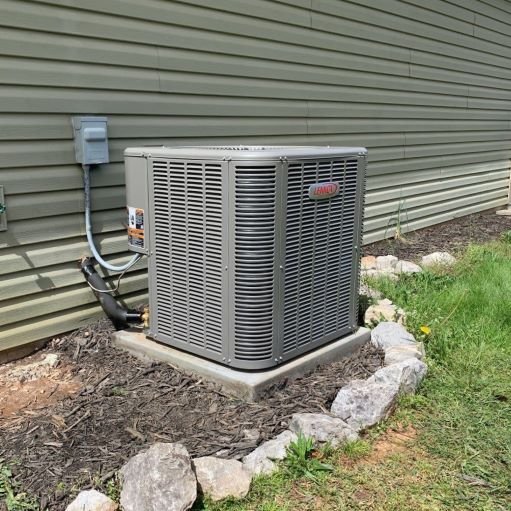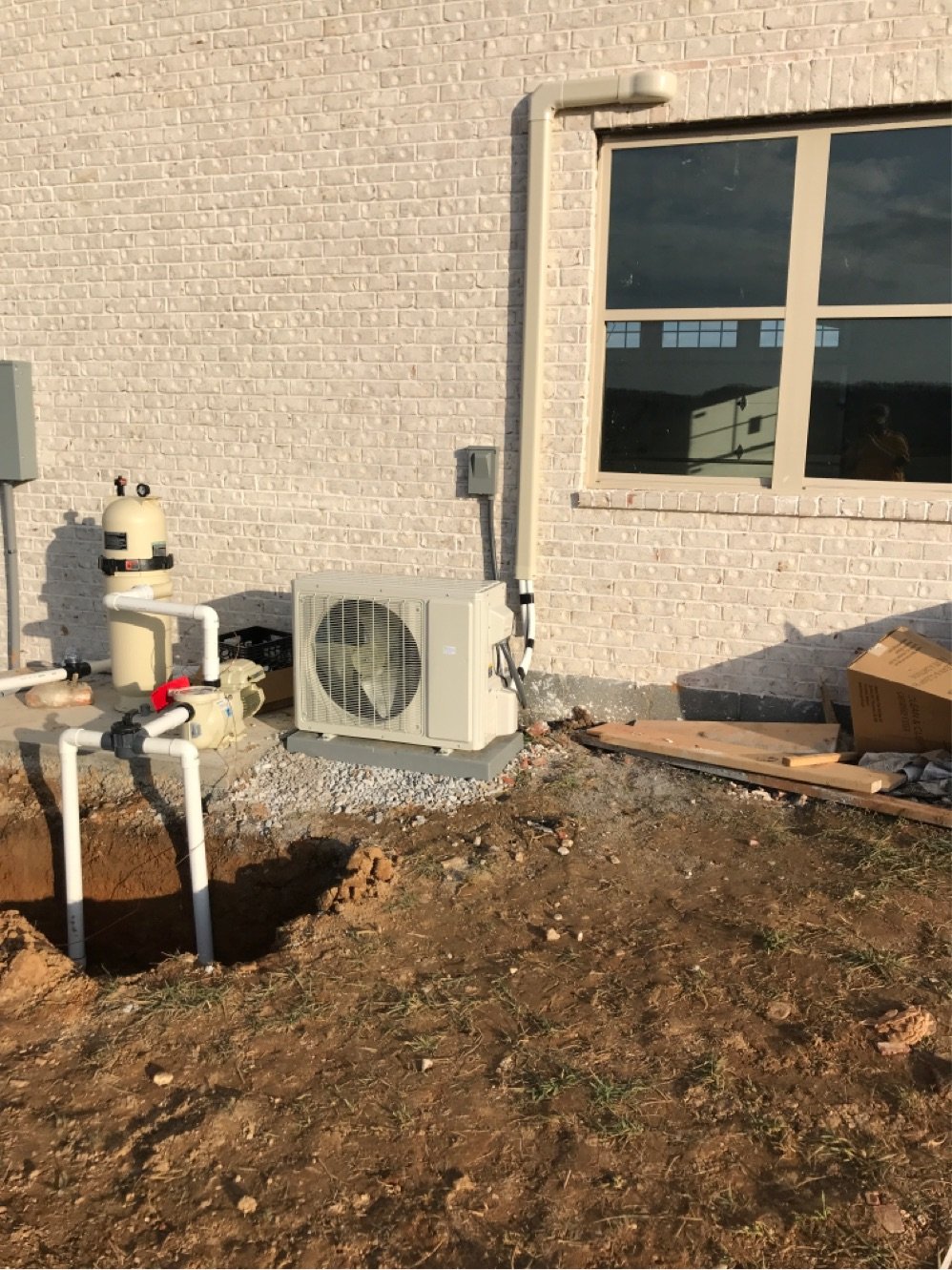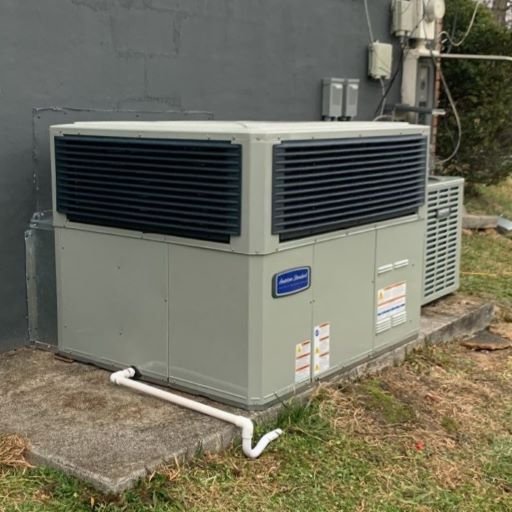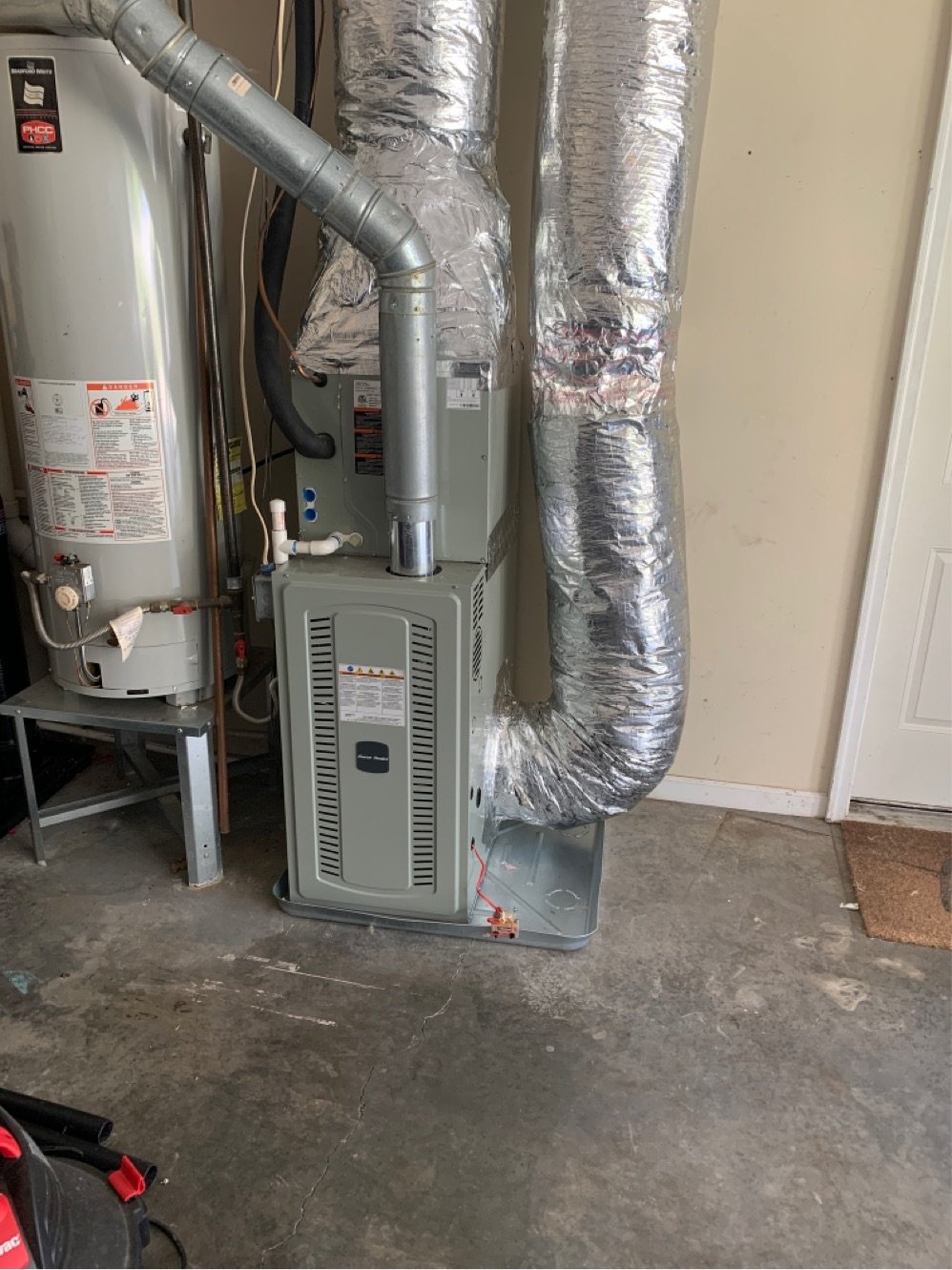How to Tell What Kind of HVAC System You Have
What Kind of System Do You Have?
You’ve got heating and cooling—but no idea what type of system is actually running your home.
From split systems to mini-splits and everything in between, this post breaks down how to figure out exactly what kind of HVAC setup you have, step-by-step. Whether you’re troubleshooting, replacing equipment, or just curious, you’ll walk away knowing what’s keeping your home comfortable.
Which HVAC System Do You Have? (Quick Checklist)
Use this visual checklist to help identify your HVAC system type based on what you see inside and outside your home:
☐ Outdoor unit + indoor furnace or air handler?
→ You likely have a split system.
☐ Wall-mounted indoor unit with no ductwork?
→ That’s a ductless mini-split.
☐ One large outdoor box handling both heating and cooling?
→ You’re probably using a packaged system.
☐ Pipes or loops running underground in your yard?
→ That’s a hallmark of a geothermal system.
☐ Electric baseboard heaters with no central unit?
→ You may have resistance heating with no central HVAC system.
Common Residential HVAC Systems
Split System (Central AC + Furnace)
Most common setup with an outdoor condenser and indoor air handler/furnace.Heat Pump System
Provides both heating and cooling by reversing refrigerant flow; available in split or packaged form.Packaged HVAC System
All-in-one heating and cooling unit, typically installed outside or on rooftops.Ductless Mini-Split System
Zoned comfort without ductwork; ideal for additions, small homes, or targeted room control.Geothermal Heat Pump
Uses underground temperatures for efficient year-round heating and cooling.Hybrid System (Dual Fuel)
Combines a heat pump with a gas furnace to optimize energy use based on temperature.Window or Wall AC Unit
Self-contained cooling units best for single rooms or small spaces.
What Type of AC and Heating System Do I Have?
If you’ve just moved into a new house, you may not know what type of HVAC system you have. Maybe it’s been too many years since you paid attention to your existing system. When you check your thermostat or walk outside to inspect your unit, you may find it a little too complicated and give up.
Either way, homeowners should be aware of the type of heating and cooling system they have, how it works, and if it’s efficient enough for their needs. That way, they’ll have a stronger idea of their options for affordable maintenance and potential upgrades in the future.
It's crucial to choose reputable air conditioning contractors for the installation and maintenance of your HVAC system to ensure optimal performance and reliability.
In this post, we’ll explore the four main types of the HVAC systems and units most commonly found, all the benefits they have for homeowners, and which system types are right for your home.
Split System
What is a split system?
A split HVAC system is when you have an outdoor unit connected to an indoor unit by copper refrigeration lines.
The most popular type of home heating and cooling system installed is the split system. When you think about air conditioning units, your first mental image will probably be of the split system. Air source heat pumps, compared to other heating systems like furnaces and geothermal heat pumps, are known for their energy efficiency and growing use in cold climates.
Your outdoor HVAC unit is a traditional condensing unit that works with indoor components like your evaporator coil, blower, and/or furnace. The condenser for these cooling systems is the most archetypal version of an air conditioner unit in the United States.
It’s very common for homeowners to assume split means, one unit upstairs and one unit down. This is not the case.
How to tell if it's a split system?
Look at the above image. First of all, notice the shape and size. All major brands have split outdoor units that are similar in shape and size. Now notice that the only things connecting the unit to your home are the whip (electrical power cable connected to the disconnect) and the insulated copper lines penetrating the wall into your home.
The indoor unit will be in a utility room, basement, closet, or attic. It will sometimes be in a crawlspace. The easiest way to find it is to follow your return duct. If it's ductless, then you'll most likely have a wall-mounted unit. But it could also be floor mounted.
Possible combinations or configurations for a split system
American standard air handler combined with heat pump for central heating and cooling system
Heat pump with air handler: Combines an outdoor heat pump unit with an air handler. The air handler will contain the blower, indoor coil, and electric heater kit. The heat pump heats your home until outdoor temperatures reach about 40 degrees. Then electric heat comes on to supplement the heat pump, also called emergency heat. The emergency heat will also come on when your thermostat setting is 3 degrees higher than your home temperature or to defrost your outdoor unit.
Straight cool air conditioner with gas furnace: Combines an outdoor straight cool condensing unit with an indoor cased evaporator coil and gas furnace (pictured in the below image). The blower and furnace heat exchanger are contained within the furnace cabinet and are in a separate case from the evaporator coil. In the below image, the evaporator coil is sitting on top of the furnace. But it could also be beside it in a horizontal application or under it in a downflow application.
Heat pump with gas furnace (also known as hybrid or dual fuel): Described below.
Manufactured homes: Nearly all manufactured homes (unless customized or modified aftermarket) will be a split system. The indoor unit will typically be an electric downflow furnace. Your outdoor unit should be a heat pump if possible. Electric resistance heat will cause high utility bills.
Packaged System
Packaged HVAC systems have the entire refrigeration system contained within one single enclosure and are connected to the home or business by ductwork.
Many homeowners have packaged heating and cooling systems. These heating and cooling systems include both furnaces and air conditioners and are a somewhat common form of home central air conditioning systems. If you have a packaged system, you’ll likely have a large outdoor unit covered by a metal hood. This hood protects against debris, rain, and small animals and insects.
Mechanical ventilation plays a crucial role in controlling indoor air quality by using mechanical systems to move air in and out of buildings, which is especially important in modern, tightly sealed homes.
These all-in-one heating and cooling systems vary in appearance but tend to be larger metal boxes with plenty of ductwork and wiring leading to and from the unit and your home. They function in much the same way as other HVAC units and at similar efficiency when providing cool air through traditional ducts.
You’ll sometimes find units in these in commercial settings as well – especially if your building lacks adequate space for the usually larger components of split systems.
Hybrid Split System
Hybrid split systems combine an indoor gas furnace with an outdoor heat pump condenser.
Hybrid split systems combine an indoor gas furnace with an outdoor heat pump condenser.
Hybrid air conditioning systems, also known as dual fuel, are very similar to normal split systems except for one key difference: they can switch between heating power sources. Hybrid air conditioner systems give you a choice between natural gas and electric heat.
Selecting efficient HVAC systems is crucial to reduce energy consumption, as these systems account for a large portion of a household's energy usage.
Hybrid split systems are set to shift heating sources at lower outdoor air temperatures. Conventional heat pumps do not heat well when outdoor temperatures are 40 degrees or less. When outdoor temperatures are this low, your dual fuel system will shut off the outdoor heat pump and use the gas furnace for heat. This is different than a typical heat pump split system where the heat pump continues to run and electric heaters supplement it.
It’s important to note that inverter-driven heat pumps like the ductless unit work down to as low as -10 degrees.
How do I tell if my furnace is 80% or +90% AFUE?
This is an important question because the price difference is significant and because the installation materials needed are much different. The main physical difference in the flue vent piping. In the image above, notice the flue vent piping coming out of the top is sheet metal. This is a sure indicator that it's an 80% AFUE gas furnace.
AFUE for a high efficiency furnace can vary between 90 and 97%. So, in the industry it is typically generalized by calling it a 90% furnace when it may actually be 92 or 97%. A 90% furnace will have PVC for the flue vent instead of sheet metal. It will also have a second penetration in the top for fresh air return. Depending on the location of the furnace it may be connected by PVC to an outdoor vent or could be a short piece of PVC sticking up a few inches off the top. A 90% furnace will also have a PVC drain for the furnace. The condensation is created secondary heat exchanger and must be drained.
Ductless Mini Split Systems
This is another option typically installed for homeowners in more temperate climates. Ductless split systems operate with several smaller air conditioning units connected through an outdoor compressor. The treated air they provide can be changed from room to room as the units tend to be installed directly into the zones that need heat and cooling.
Ductless heat pump systems are also excellent for properties where a lack of traditional ducts makes installing ductwork too difficult or altogether impossible.
Ventilation air plays a crucial role in managing indoor air quality and humidity, filtering out contaminants and moisture, which is essential for maintaining the efficiency of HVAC systems.
The downside of a mini-split system is the maintenance factor. Because there are so many smaller sections of the system, you may need more frequent maintenance to ensure every part works at optimal efficiency. It can also be difficult to source repair parts.
What About a Heat Pump?
When you hear the term heat pump, you might expect it’ll only be used during the winter months. The term heat pump heater is something of a misnomer – heat pumps are very similar to traditional air conditioners.
ENERGY STAR certified HVAC systems can lead to significant energy savings by enhancing residential energy efficiency and reducing energy bills.
The only difference is that when you need to reverse its function, it supplies heat. If your house is in a part of the world where temperatures rarely dip below freezing, a heat pump may be just right for you.
Similar to the way heat pump in your refrigerator works, a heat pump uses electricity to move heated air from areas with cool air to areas with warm air. Heat pumps typically operate like mini-split systems with both an indoor cabinet and an outdoor cabinet.
Determining Make and Model
If you need to find out more specific information regarding your HVAC system, you don’t need to have a thorough understanding of all the components. Instead, you can simply look for the logo or label. Once you find it, you should know your HVAC system’s brand and model number.
Understanding and managing HVAC components is crucial for the efficient operation of your system. All system components, such as air handling units and controls, should be easily accessible for maintenance purposes, and label specifics for proper operation are provided to enhance the understanding and management of these components.
Afterward, you can Google and find out more detailed information like the efficiency ratings of your air conditioning system and what categories it falls under. This can be especially helpful for homeowners who aren’t sure whether they have a heat pump, electric hybrid heating system, electric hybrid heating system, split system, or one of many other HVAC systems.
Air Conditioning Equipment
How Air Conditioning Equipment Works
Air conditioning equipment cools your home by using a refrigeration cycle. Here’s a simplified breakdown of how it works:
Air Intake: Warm air from your home is drawn into the air handling unit.
Cooling Coil: The air passes over a cooling coil filled with refrigerant, which absorbs the heat from the air.
Heat Release: The refrigerant, now carrying the heat, is pumped to a condenser coil outside, where it releases the heat to the outside air.
Cooled Air: The now-cooled air is blown back into your home through the ductwork.
Continuous Cycle: This process repeats continuously to maintain a consistent indoor temperature.
Air conditioning equipment can be powered by electricity, gas, or oil and can be designed to cool a single room or an entire building. Here are some common types:
Window Units: Self-contained units installed in a window, ideal for cooling single rooms.
Split Systems: Systems with separate indoor and outdoor units, often used for larger buildings.
Packaged Systems: All-in-one units that house the compressor, condenser, and fan in a single enclosure.
Heat Pumps: Versatile systems that can both heat and cool your home, suitable for mild climates.
What Type of HVAC System is Right for You?
Now that you know the types of common HVAC systems, you may wonder if your current system is ideal for your house. Some heating systems are outdated, and older furnace and air conditioner models may not be as efficient as newer ones. HVAC units are pieces of technology that should be kept up-to-date – in other words, it's not just about keeping a fresh air filter year-round.
Consider Climate Zones
Think about this: if you live in Las Vegas, you probably have a very different climate than you would living in Miami. The heating systems most common in Minnesota (where they hardly need an air conditioner!) will be dramatically different from those systems found in New Mexico. Mild climates and moderate climates may also require different heating and air conditioning systems for their indoor air needs.
Consider where you live and the type of furnace and HVAC systems you see regularly. Additionally, consider what your desired temperature might be throughout the year for your indoor environment.
Conclusion
Trust the Experts
Each HVAC unit and system type we’ve described has its own benefits, for heat and cool air. They also have their downsides, depending on your specific needs for heat, utility bills, moving air in your building, and so on.
HVAC technicians play a crucial role in ensuring the effective operation and maintenance of heating, ventilation, and air conditioning systems through specialized training and certification.
That’s why your next best step is to reach out to a professional HVAC company. Find out what heating and air system types are most common in your area. If you have specific, heating system needs, your HVAC contractor can let you know which furnace systems will suit your needs the best.
If you want to know the type of system they recommend most, they’ll provide you with a range of affordable choices that suit your family, your budget, and your home.
When choosing between a central air system and a ductless heat pump, it’s important to consider the layout and cooling needs of your home. For multiple rooms, ductless mini-splits offer a flexible and often cost-effective solution, especially for DIY installation enthusiasts. With one indoor unit per zone and the convenience of remote control, these systems provide an efficient solution without the bulk and complexity of traditional ductwork. Proper management of the condensate drain is crucial to prevent water damage, particularly in a single zone system setup.
The installation process includes running refrigerant tubing between the indoor and outdoor units, which is ideal for room additions or spaces where expanding ducts would be costly. Ductless systems also minimize energy losses common in long duct runs and are available in floor standing models for design flexibility. Understanding the main components—including the compressor, evaporator, and line sets—is essential for ensuring system longevity.
Whether you're upgrading the entire home or targeting individual rooms, a ductless system can deliver customized comfort without sacrificing energy efficiency.
What type of HVAC system do I have at home?
Identify your system by checking your thermostat or examining the outdoor unit. Common types include split systems, packaged units, and ductless mini-splits.
How often should I replace my HVAC filter?
Filter replacement frequency depends on factors like filter type and household conditions. As a general rule, check and replace disposable filters every 1-3 months.
What's the optimal temperature setting for my HVAC system?
A comfortable temperature setting typically falls between 72-78°F. Adjust based on personal preference and energy efficiency goals.
How can I improve energy efficiency with my HVAC system?
Regular maintenance, proper insulation, and investing in a programmable thermostat are effective ways to enhance energy efficiency.
What are the signs that my HVAC system needs professional maintenance?
Look out for irregular heating or cooling, strange noises, increased energy bills, or frequent cycling. These may indicate the need for professional inspection and maintenance.
To become an HVAC technician, one must complete necessary education and training steps, such as obtaining an HVAC certificate, completing an apprenticeship, and achieving relevant certifications.










